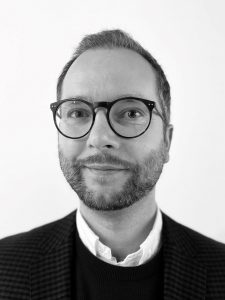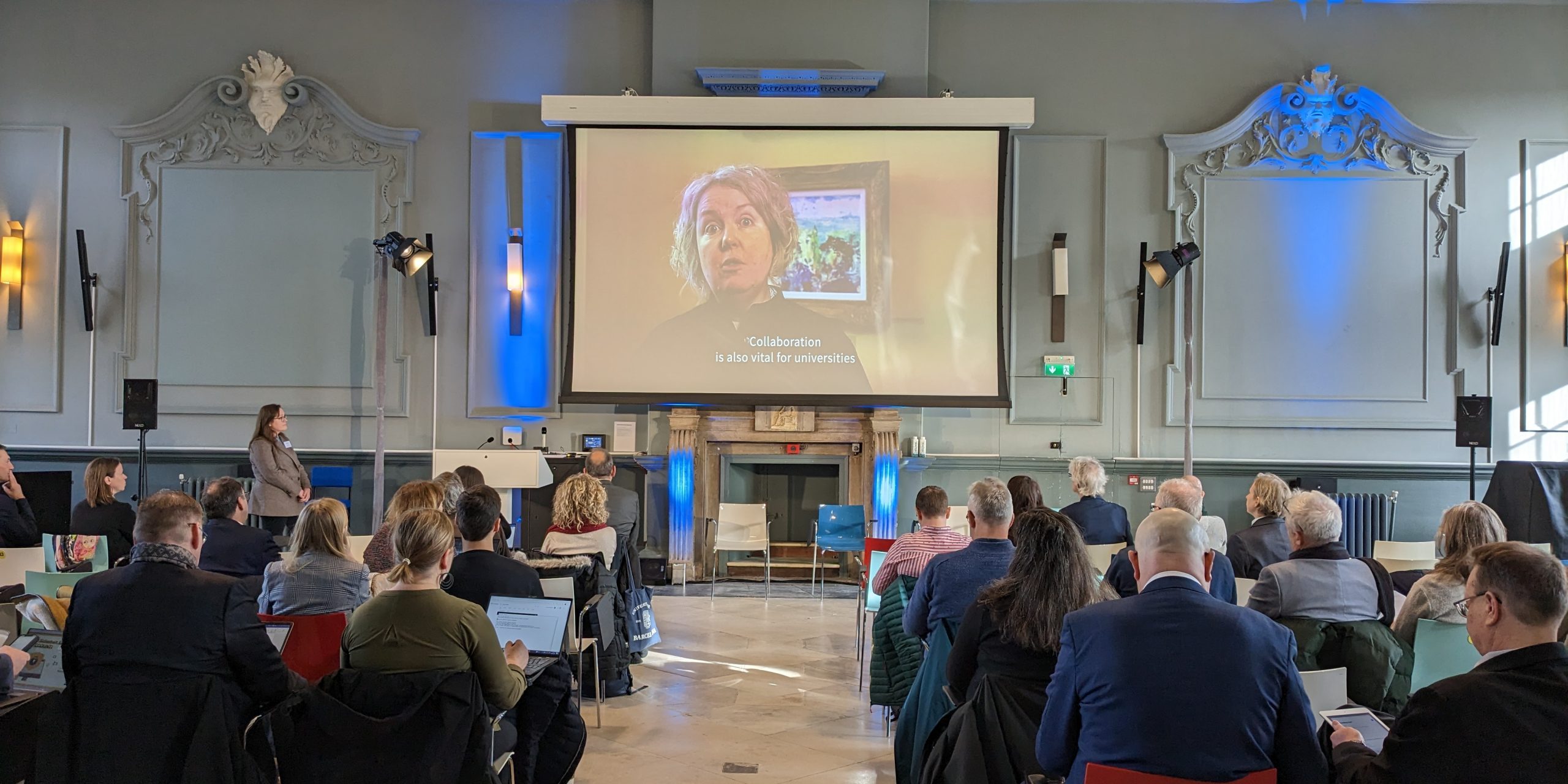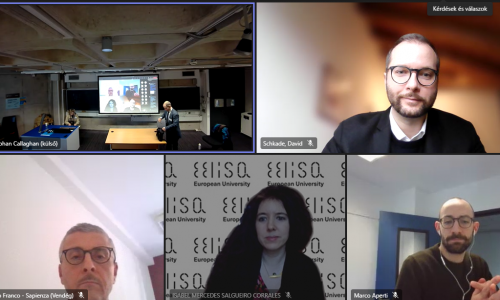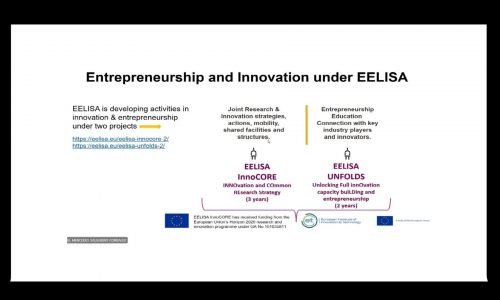EELISA InnoCORE participated in the second TORCH Annual Forum celebrated on 8 March 2023. Under the title “Sharing Common R&I Policies and Strategies: strengthening collaborations towards a transformational approach”, researchers, innovators, and policymakers gathered in Dublin to discuss topics such as research assessment reform, and equality, diversity, and inclusion in research.
Isabel Salguerio (UPM), and Dr. David Schkade (FAU), were invited to participate in the Forum as project managers of EELISA InnoCORE, the Research & Innovation wing of EELISA. In this interview, they share some insights and reflections on this event.
Q. Can you share with us some key ideas about EELISA InnoCORE and how this Forum is relevant to its mission?
A. (Isabel Salgueiro) EELISA InnoCORE is a project funded under Horizon 2020, made of the nine EELISA original partners. It started in June 2021 and will last until May 2024. Under InnoCORE, we are designing and testing new models of collaboration in research and innovation. For example, finding ways to increase connections among our researchers, such as the call for workshops that we just launched We are working on an infrastructure catalogue that we will put online soon and also on transversal issues such as open science or gender equality. We have also made very important progress in innovation and entrepreneurship, which is what we talked about on 8 March.
As I said, EELISA InnoCORE is funded under Horizon 2020 under a call that the European Commission launched exclusively for European University Alliances for developing their R&I dimension. This means that most of our colleagues have also their “InnoCORE”, this is, that they are also exploring new ways of collaboration in R&I. TORCH is the “InnoCORE” of CHARM-EU Alliance. Getting to know what our colleagues are doing, sharing learnings about what is working and what is not working, about the challenges they are facing and how they are tackling them, all these exchanges are fundamental. The exchange with colleagues helps us improve, anticipate challenges and also find inspiration.
These kinds of events are also very important for policy-making. In these events, Alliances share their experiences and find common ground regarding what they are missing or what should be done at the EU level to ease the realization of ERA (European Research Area).
Q. And how can EELISA InnoCORE contribute to events such as this one?
A. (Isabel Salgueiro) Learning from others is fundamental for us. As I said, for us it is very inspiring and, because of this, we think that sharing our experience, in turn, is also fundamental. Last year, we participated in the first TORCH annual forum and talked about the methodology we were using for developing our research strategy because we had been working on it for the last months and we had just finished the first version of it. The first version of our EELISA R&I strategy was submitted to the EC in February 2022 Last year, we realised that other Alliances were using similar methodologies, while others were using slightly different approaches. It was very enriching.
This year, we decided to share our experience in innovation and entrepreneurship, because we have done a lot in these topics. Not only through EELISA InnoCORE, but also through the project EELISA Unfolds which is finishing now. During this first phase, EELISA InnoCORE and EELISA Unfolds have tested initiatives and we have gathered a lot of experience that we think can be useful for other colleagues
David Schkade (upper rigth corner) and Isabel Salgueiro (bottom line, centre) during their presentation.
Q. At the second TORCH annual forum, you talked about innovation and entrepreneurship. What are the main achievements of EELISA in this field?
A. (David Schkade) Our main achievement is that EELISA has succeeded in creating new opportunities for its startups and innovators. We did so by opening existing and offering new innovation and entrepreneurship activities as well as by building joint capacities and structures. With regard to EELISA entrepreneurship activities the EELISA Unfolds project has already offered numerous activities like the EELISA “Change Makers: Shaping the Future” course or the EELISA “European Championship Demo Day” that was accompanied by a mentorship program for startups – a great success! Currently, in EELISA InnoCORE we are working on the EELISA Entrepreneurship Action Plan that will continue the achievements of EELISA Unfolds and go one step further in systematically connecting our startup support institutions, services, programs, and courses. We are aiming at an EELISA landscape of startup support that will allow us to use startup support resources more efficiently and build up joint structures that will improve our innovation ecosystems.
Concerning EELISA innovation activities, our main achievement is – apart from opening existing and offering new innovation activities – that we succeeded in transforming EELISA into the first European University that offers test spaces for prototypes to its startups, researchers, and innovators. We did so by launching the first EELISA prototype contest, the winner of which could get the first EELISA Test Space at JOSEPHS, the open innovation lab that is part of FAU’s innovation ecosystem and located in the city center of Nuremberg in Germany. The winner of the contest was a nature-based air purifier, developed by “The Green Factor”, a startup from our EELISA partner university UPM in Madrid. The air purifier addresses the serious problem of air pollution that is virulent in many European cities. In the EELISA Test Space more than 100 potential customers have carefully tested the prototype of the air purifier and their user experiences have been professionally evaluated. The evaluation of user experiences greatly helped the startup to get important information about the needs and wants of potential customers before the market launch of its product. In addition, the first EELISA prototype contest did not only help the winning startup but also the other startups participating in the contest who profited from JOSEPHS’ long-standing expertise in open innovation and co-creation through the EELISA x JOSEPHS Co-Creation Workshop. And finally, the contest also helped to disseminate successful open innovation practices in EELISA and bring about institutional transformation towards a more European innovation ecosystem.
Q. Could you also say something about the best practices that you have identified as well as about the challenges that you are facing with regard to entrepreneurship and innovation in EELISA?
A. (David Schkade) Yes, of course. First, I think pilots are very helpful to learn from. Sometimes things just need to be done, and there’s nothing wrong if they are imperfect the first time, especially when you take into consideration that very often important lessons can be learned from these pilots. In such a way EELISA Unfolds is also helpful as a pilot for EELISA InnoCORE entrepreneurship activities. Furthermore, we made the experience that contests are a good means to open and share unique institutions in a European University innovation and entrepreneurship ecosystem and also to open the local innovation and entrepreneurship ecosystem of each EELISA partner. The first EELISA prototype contest is a good example of this. Another insight is, that opening existing offers for other EELISA partners is easily manageable and quite effective. And one step further, it seems to be very promising in long-term alliances to interlink offers in a systematic way to avoid double structures and reallocate resources to build missing offers for startups and innovators.
But of course, we are also facing challenges: Sometimes we have great offers, but few participants from other EELISA partners. Successful promotion in all EELISA institutions is a key challenge. Connected to this is another challenge: The pool of startups – or let’s say of people interested in innovation and entrepreneurship activities – at each partner institution has a certain size and many activities have to rely on this pool. However, it would be desirable not just to have to rely on this pool, but also to increase it in the future through targeted activities. We hope that outreach formats like EELISA Innovation Talks or EELISA Startup Contests contribute to getting more people interested in innovation and entrepreneurship. In this context, it is crucial to understand that innovation and entrepreneurship are key elements in creating a desirable future.
Isabel Salgueiro works as project manager of EELISA InnoCORE at UPM. She has been working in EU policy-making and EU funding for over 10 years in different positions both in Brussels and Spain.
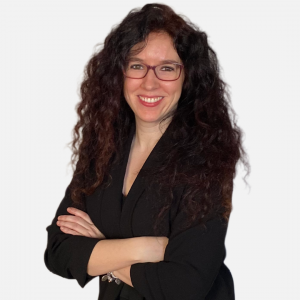
Dr. David Schkade works as project manager of EELISA InnoCORE at FAU. He has published a book on the political philosophy of Alexandre Kojève and worked as a research associate at the Institute of Political Science at FAU.
